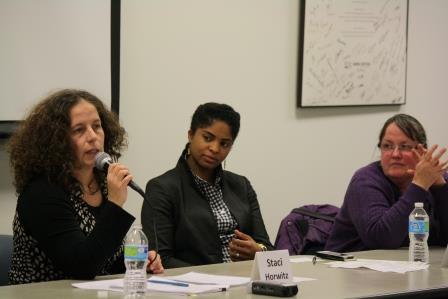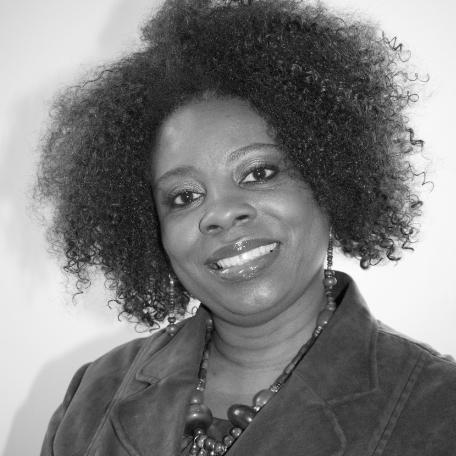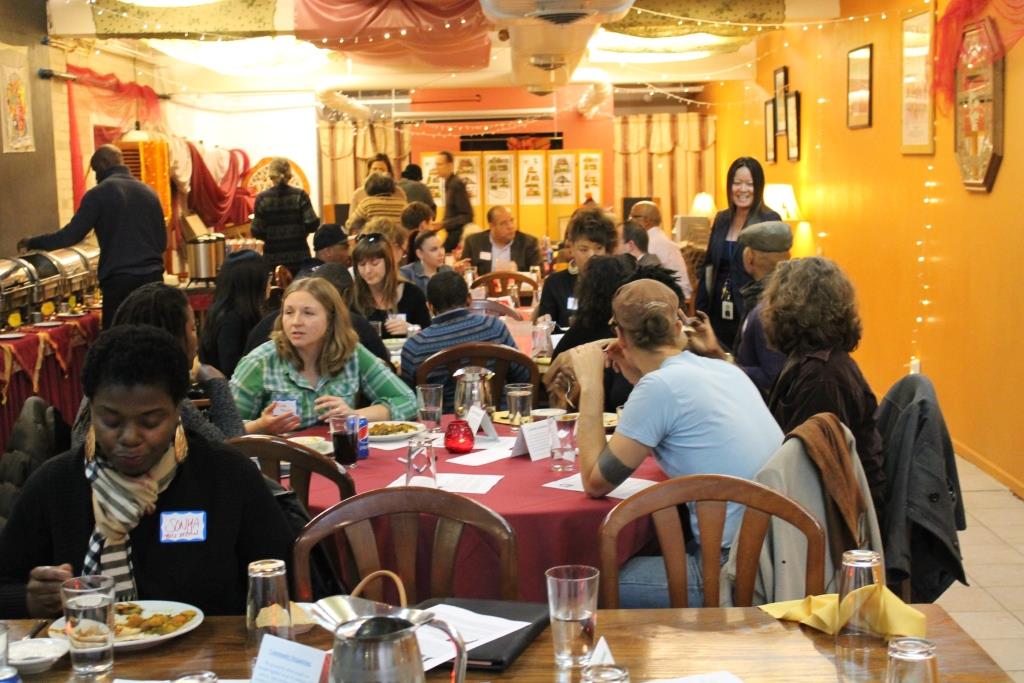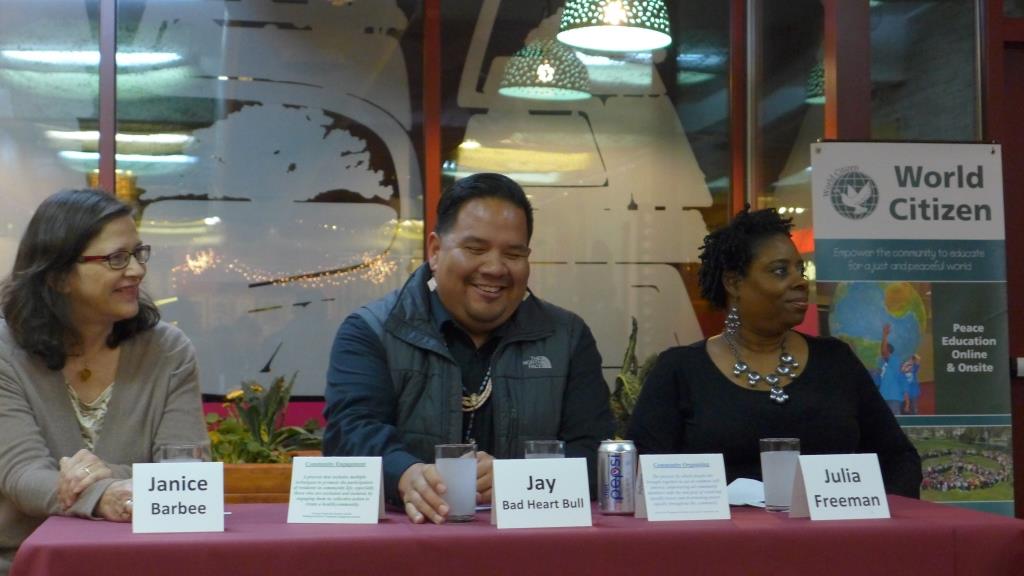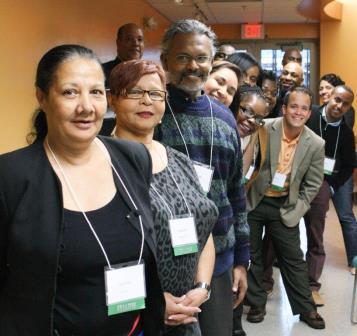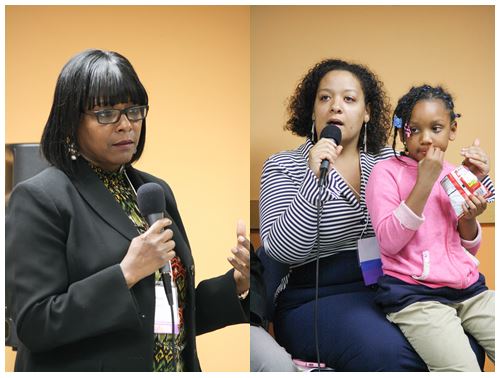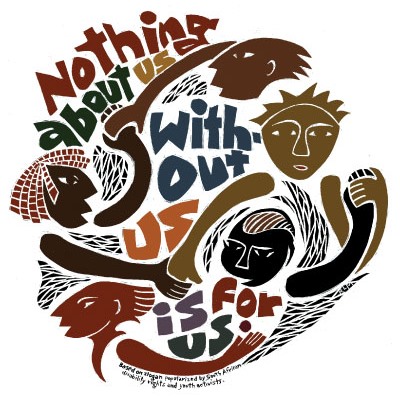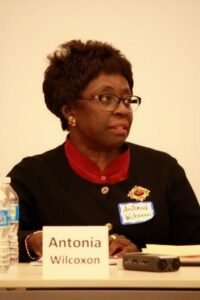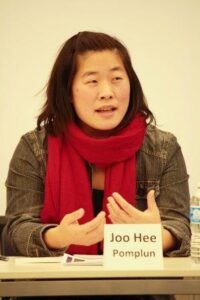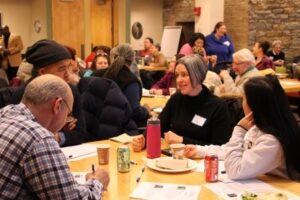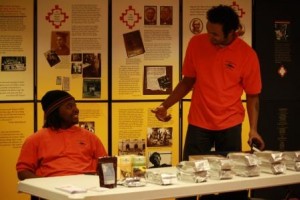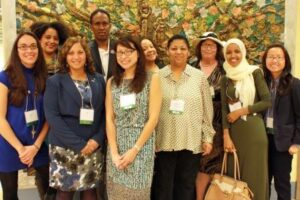Nexus Community Partners is proud to announce the graduation of our inaugural fellows from the Boards and Commissions Leadership Institute (BCLI)! Over 40 friends, family members, knowledge partners and supporters joined the celebration on Thursday, April 10th at the Minneapolis American Indian Center. We honored our twelve graduates as they move beyond the seven-month training toward placement and decision-making on local boards and commissions. Meet the graduates and see what boards and commissions they are seated on or targeting here.

From left to right: Ilhan Omar, Abdirahman Muse, Cathy Jones, Naida Medicine Crow,
Kandace Montgomery, Maleta (Queen) Kimmons, Marsha Cressy,
Roxxanne O’Brien, Sammie Ardito Rivera
Not pictured: Cynthia Campos, Maggie Lorenz, Mee Cheng
Elder LeMoine LaPointe, who participated in the BCLI Launch Event, opened the graduation with a blessing alongside his two sons, Wakinyan and Thorne LaPointe, and relative Mi-zi-way Mi-gi-zi Desjarlait.
The graduation program featured a slideshow of the various activities of this year’s program, including photos from our Saturday training sessions, the October Program Launch and from the BCLI Thursday Night Issue Series. The fellows then got a chance to share their stories of what this program meant for them personally and for the broader equity movement in the Twin Cities.
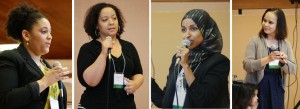
From left to right: Kandace Montgomery, Roxxanne O’Brien, Ilhan Omar, Sammie Ardito Rivera
“[I am] part of a group called Advancing Women’s Voices where we gather and we talk about leadership and power within the Somali community and what it means for women to have a voice…We decided to all nominate each other for this [BCLI] and I luckily got picked,” said Ilhan Omar, who was appointed Senior Policy Aide to Council Member Andrew Johnson after beginning the BCLI.
Roxxanne O’Brien spoke about her success on the Minneapolis Citizen’s Environmental Advisory Committee: “It was really frustrating the first few months…being one of the only black women on the board and trying to bring forth my values and experiences…[Until recently, when] we just finally had a unanimous vote to pass equity language to the City Council and the Mayor, which would [bring] some options for floods or emergency situations in our communities that would reach people in poor communities – would reach people of color.”
“I want to see more unity amongst people of color to rise together to get what we need…I was really excited about the possibility [in the BCLI] to work across culture with people working on different issues…I was seated on the Homegrown Minneapolis Food Council this January…I’m glad to be able to expand my work of health and wellness and my knowledge about food systems and gardening within my own community, and larger systems change for all our communities,” shared Sammie Ardito Rivera.
Kandace Montgomery acknowledged that advancing equity through boards and commissions is but one strategy for systemic change: “It doesn’t stop at the city level. There are five legislators of color at the capitol…We need to be running our own folks for seats by building power that pursues true democracy…We need to be developing leaders to be bold at those decision-making tables and to never leave their community behind. This is how we tell our own story. This is a story that tells everybody they can belong, and this is how we build our movement.”
Check out the video of the graduation here, and the photo gallery here.
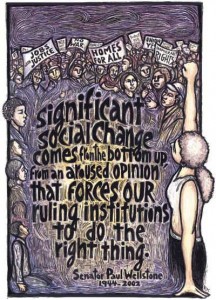 The graduates were gifted a Certificate of Graduation, as well as a signed copy of local activist and artist Ricardo Levins Morales’ work titled Wellstone Memorial that included a quote from the senator: “Significant social change comes from the bottom up, from an aroused opinion that forces our ruling institutions to do the right thing.”
The graduates were gifted a Certificate of Graduation, as well as a signed copy of local activist and artist Ricardo Levins Morales’ work titled Wellstone Memorial that included a quote from the senator: “Significant social change comes from the bottom up, from an aroused opinion that forces our ruling institutions to do the right thing.”
Nexus President & CEO Repa Mekha concluded the event with the following remarks: “This is not about individuals, but about the power that comes when people from across cultures that have shared vision about change in this world weave themselves together, learn together, and commit together; that’s much more powerful than what any individual can ever do.”
The BCLI has prepared these leaders to serve as the next generation of appointed officials who are representative of, and accountable to, the region’s communities of color and other underrepresented populations – creating real demands and real change for our children, our community and the Twin Cities region.
BCLI staff would like to say a special THANK YOU to all of our funders, knowledge partners, training facilitators, guest speakers, Issue Series panelists, evaluators, nominators, fellows, selection committee members, and all of the BCLI community and family – thank you for all of your amazing work, and for helping with the development and implementation of this program! We couldn’t do this without you!
Keep an eye out for these upcoming 2014-2015 important dates! For more information about the BCLI, contact the program associate, Ms. Angie Brown, at abrown@nexuscp.org, or the program director, Ms. Terri Thao, at tthao@nexuscp.org.
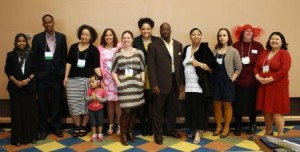
From left to right: Ilhan Omar, Abdirahman Muse, Roxxanne O’Brien, Cathy Jones, Angie Brown, Kandace Montgomery, Repa Mekha, Maleta (Queen) Kimmons, Sammie Ardito Rivera, Marsha Cressy, Terri Thao
Not pictured: Cynthia Campos, Maggie Lorenz, Mee Cheng, Naida Medicine Crow
“Significant social change comes from the bottom up, from an aroused opinion that forces our ruling institutions to do the right thing.” Senator Paul Wellstone 1944-2002

